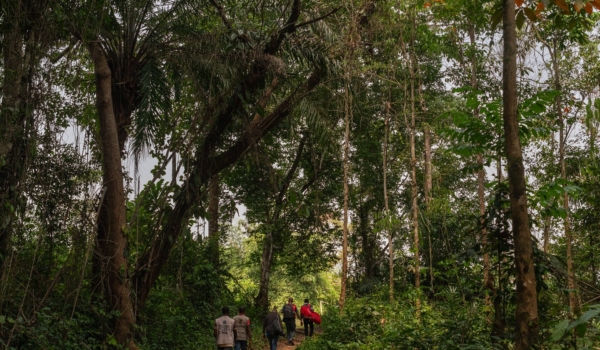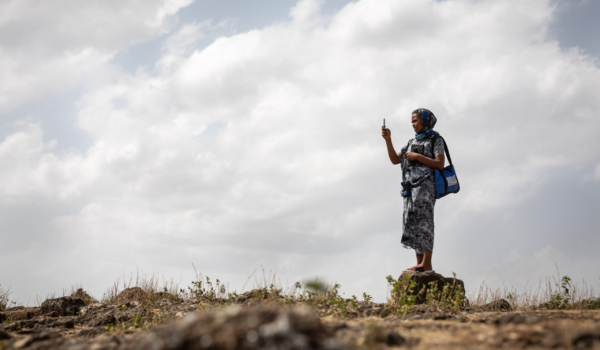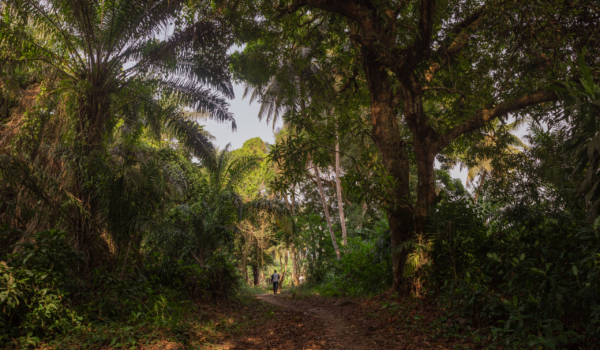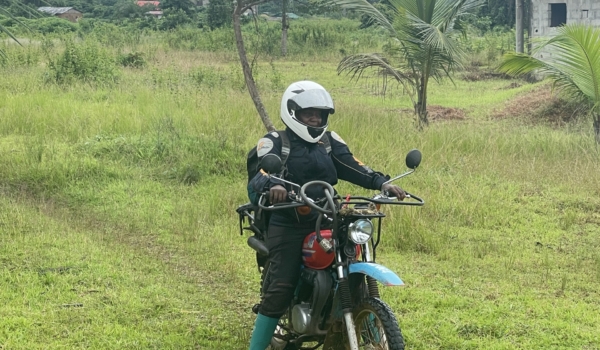Approximately 30% of Liberians live farther than five kilometers from a health facility. For those who live hours – or even days – away from the nearest clinic, it can be all too common for treatable conditions like malaria to be fatal.
But community and frontline health workers in the Government of Liberia’s National Community Health Assistant Program are changing that by harnessing the power of technology to transform the delivery of rural healthcare. In September 2019, Last Mile Health supported the Ministry of Health to achieve a significant milestone: the distribution of smartphones to every community and frontline health worker in the national program. Now equipped with real-time access to educational content on malnutrition and malaria, health workers can use text, videos, and quizzes to strengthen the quality of care provided during home visits.

James, a community health worker in Rivercess County, Liberia, navigates Last Mile Health’s Community Health Academy mobile application.
Thanks to support from Health eVillages, digitally empowered health workers in Maryland County, Liberia are improving health outcomes for the county’s rural communities. As part of the deployment, community and frontline health workers from across the county attended a training to learn how to apply digital education tools to their daily work.
Equipped with these tools, community-based health teams in Maryland County have carried out more than 98,000 home visits; treated and/or screened over 56,000 childhood cases of pneumonia, malaria, diarrhea, or malnutrition; supported 6,400 pregnancy visits; and identified over 100 potential epidemic events.
Nationwide, community and frontline health workers have found watching real-life patient symptoms depicted in videos on their smartphones not only informative, but empowering—a stark contrast to two-dimensional illustrations and text descriptions common in previous paper-based training manuals.
“When I watch these videos, I can see the symptoms, I can compare and know whether I should treat the child or refer him to the facility,” shared Nathaniel Paye, a community health worker in Liberia.
With the initiative now scaled to 14 counties in Liberia, community and frontline health workers are demonstrating how digital health can be leveraged as a means of boosting health worker knowledge and skills, optimizing performance, and ultimately improving the quality of healthcare for 1.2 million people living in the country’s most remote communities.
Last Mile Health is grateful to Health eVillages for catalyzing progress towards quality healthcare across Liberia and accelerating our shared vision with the Government of Liberia to bring a health worker within reach of everyone, everywhere.
This blog was originally featured on Health eVillage’s website.




